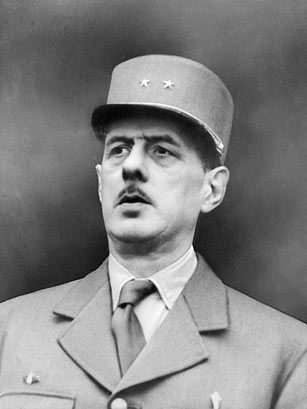
The father of modern France was a relatively unknown general when he became the face of French resistance against Nazi Germany during World War II. In his now historic Appeal of June 18, de Gaulle decried his country's proposed armistice with Germany and delivered a passionate plea for continued opposition against the Nazi Army in a 1940 radio address broadcast by the BBC. Nearly two decades later, de Gaulle saw his country through another period of conflict, the Algerian War, when he defied some of his most loyal supporters and helped Algeria gain independence. A fervent nationalist, De Gaulle was the architect of a new constitution that bolstered executive power and founded France's Fifth Republic, for which he became the first president in 1959. As leader of his country, he revalued the nation's currency with the introduction of a new Franc, expanded industry and gave women the right to vote. De Gaulle staunchly advocated an independent French arms arsenal, twice blocked Britain's entry into the European Common Market, removed French forces from NATO and condemned America's war with Vietnam, a move that set the tone for the frosty Franco-U.S. relations still present today. Ultimately, his name became synonymous with a uniquely French political system whose legacy is being both preserved and grappled with by current President Nicolas Sarkozy.